Sommaire
- 1 Introduction
- 2 Video d'introduction
- 3 Étape 1 - Cut down the rough wood
- 4 Étape 2 - Add the slot for the aluminum
- 5 Étape 3 - Shape the wooden handles
- 6 Étape 4 - Drilled out the holes
- 7 Étape 5 - Add the aluminum
- 8 Étape 6 - Drive in the dowels
- 9 Étape 7 - Finish with oil
- 10 Étape 8 - Now, To Find Some Salad!
- 11 Notes et références
- 12 Commentaires
Introduction
Matériaux
Un bloc de bois de tilleul
Une bar d'aluminum
Outils
Scie à ruban
Scie circulaire
Belt sander
Drill press
Torch and aluminium rode
Étape 1 - Cut down the rough wood
For the functional tongs, I use a large chunk of basswood. I drew out the spatula-like shape on the face and cut the thick piece of wood on the band saw. I then turned the piece on its side and resawed the basswood into my two handles. These two halves were still pretty thick and the shape was not yet finalized, all of that would be done with the sanders.
Étape 2 - Add the slot for the aluminum
Now here’s your word of warning, the cut I made into the stem of the handles made me a little nervous. In hindsight, I could have made a quick jig to securely hold the pieces while I passed them over the table saw vertically, but I didn’t think of that at the time. Instead, I mitigated all of the risks and carefully passed the skinny end of the handles over the blade to cut in the pocket that would hold the aluminum.
Étape 3 - Shape the wooden handles
This process involved a lot of patience and a lot of sanding. I flushed up the stem edges with the edges of the aluminum and then used the belt sander to finalize the handles’ overall shape. The two handles were pressed together and sanded simultaneously so that their profiles matched. The scoop was carved into the paddles by running them over the rounded end of the belt sander. To round over the crisp edges, I clamped the handles to my work bench and used some files to make some comfortable contours.
Étape 4 - Drilled out the holes
For the handles, I used some flat aluminum bar stock that I could bend over to act as a spring. Before I bent the metal, I set the flat bar into the slots on the wooden handles and drilled out the holes for the dowels that would connect the pieces with the drill press. I had some 3/8″ aluminum round bar and cut little dowel pieces on the miter saw. Two holes were drilled through both materials so later, I could permanently peg them together.
Étape 5 - Add the aluminum
To bend the flat bar into a spring, I first scored a groove down the center of the piece to act as a fold line. I carefully heated up the aluminum along this line and hammered the piece over into an acute angle. There was an obvious cut line left in the crease that I wanted to cover up. So, I used a torch and some aluminum rod to braise the crease for some extra strength and to give the handles a cleaner look.
Étape 6 - Drive in the dowels
All that was left was to drive in the dowels (0,5cm high) through the attachment holes and secure them in place with some CA glue.
Étape 7 - Finish with oil
Because this piece will be touching food, I used a butcher block conditioner meant for cutting boards. This product is food safe and won’t leak any harmful chemicals into our healthy salads. I really like this oil because it’s quick and easy, leaves the wood a vibrant color, and I don’t have to worry about it coming in contact with the things we eat.
Étape 8 - Now, To Find Some Salad!
This project is done. I set out to make a functional set of salad tongs that we could use for dinner and I did that. But…a project this simple begs for a dash of nerd, so we went a little overboard and made something kind silly (awesome) using more outlandish tools.
Notes et références
Check out this tutoral and a many more on iliketomakestuff.com.
Yes
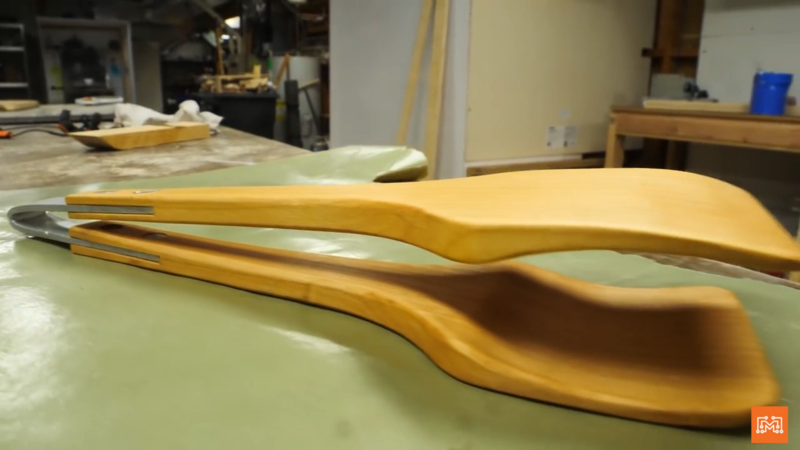
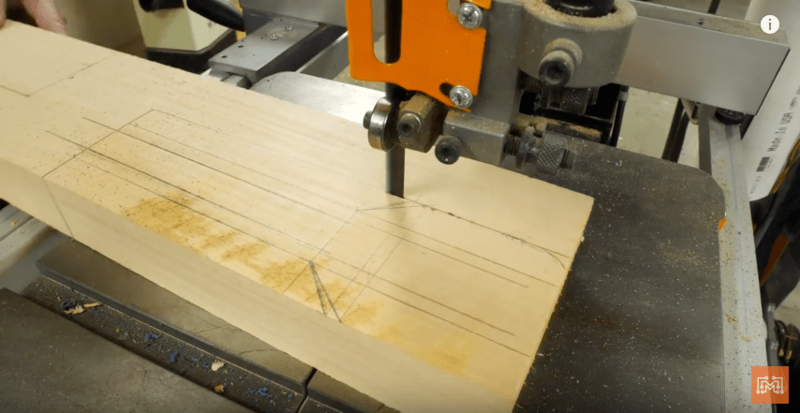
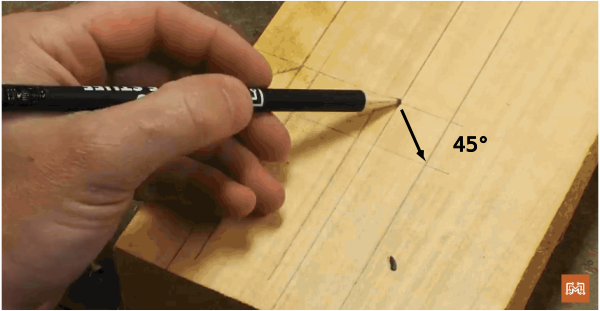
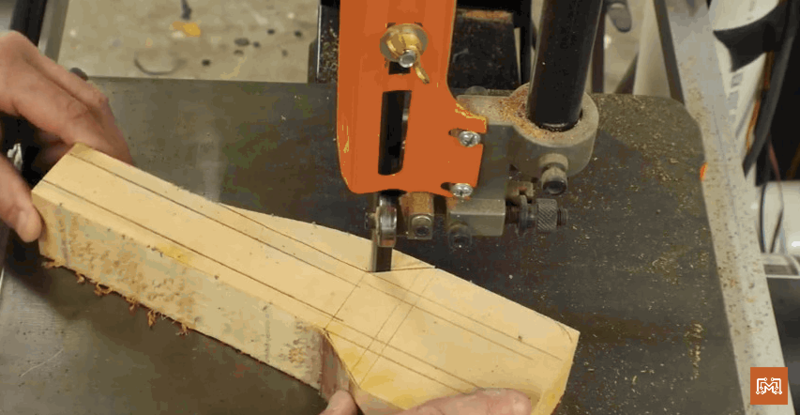
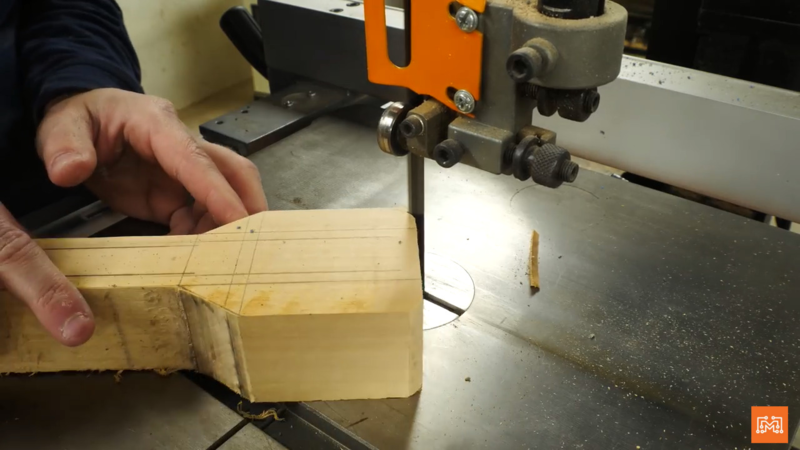
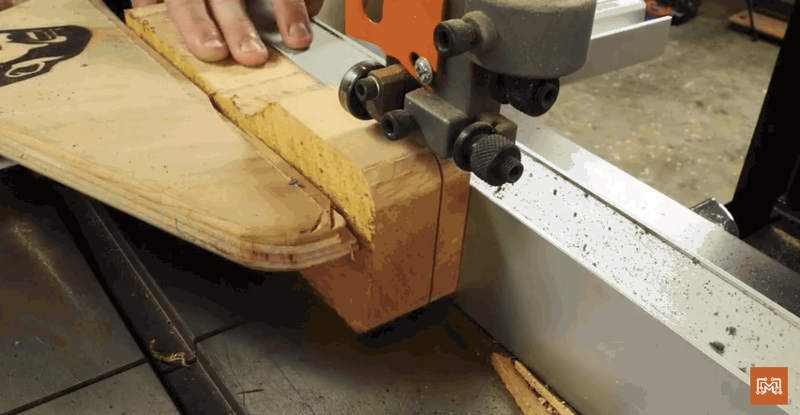
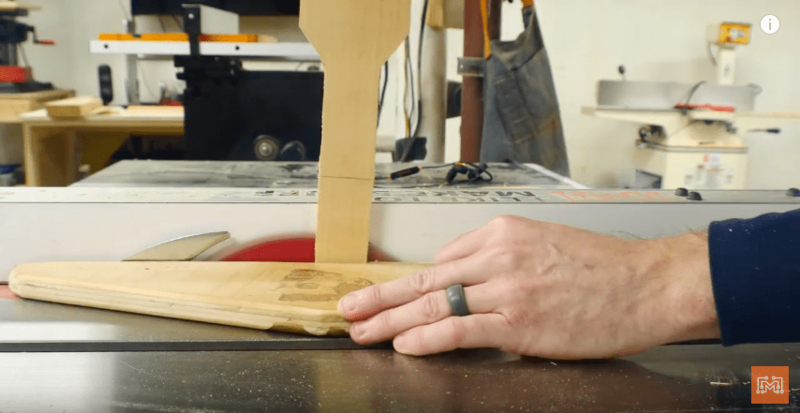
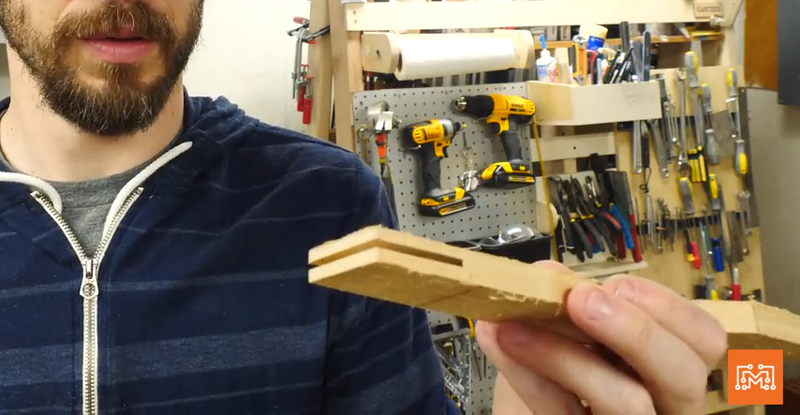
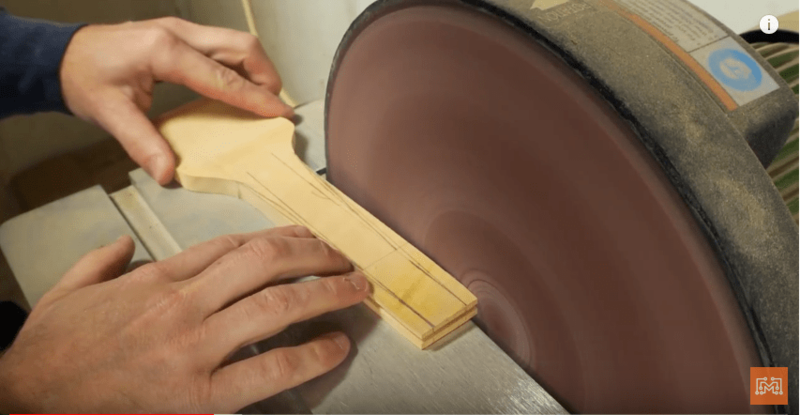
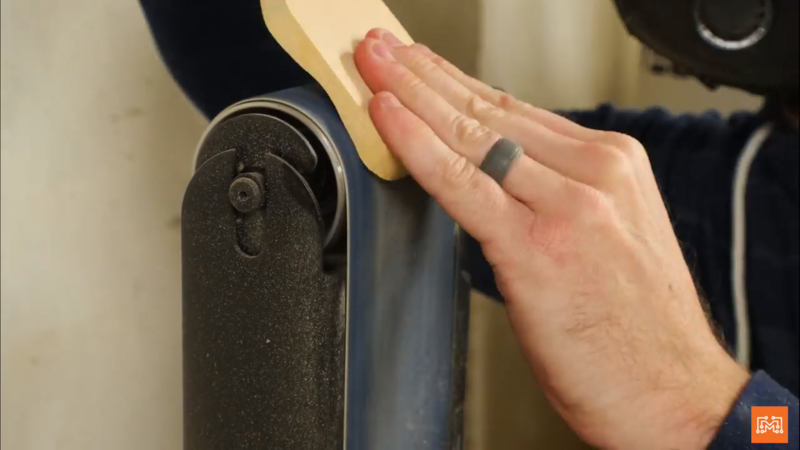
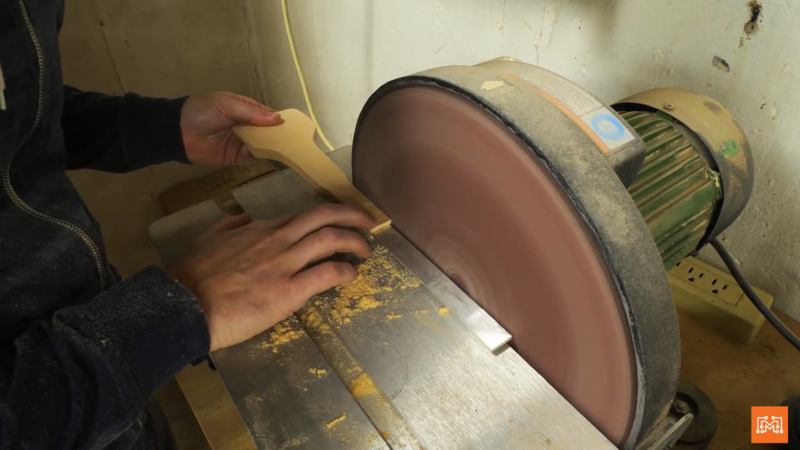
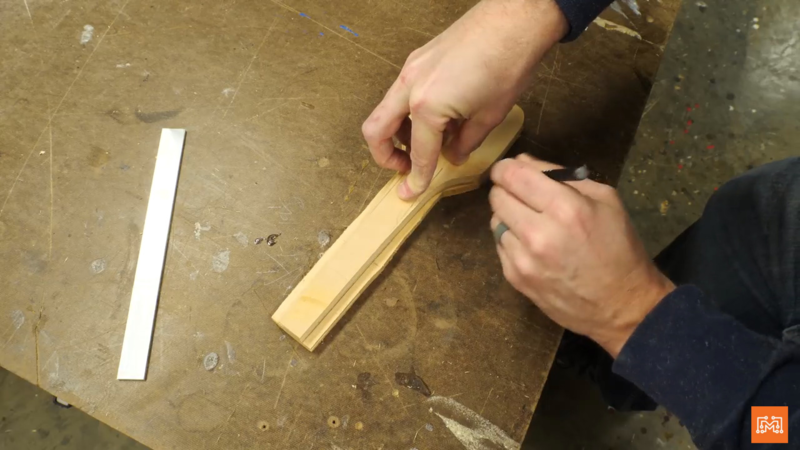
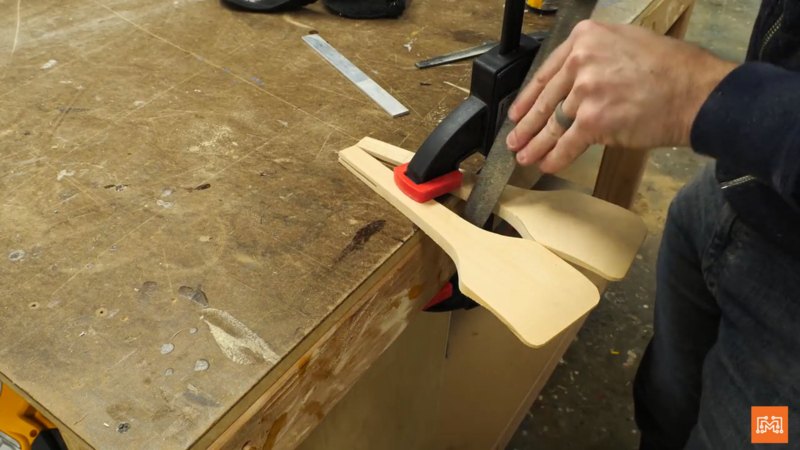
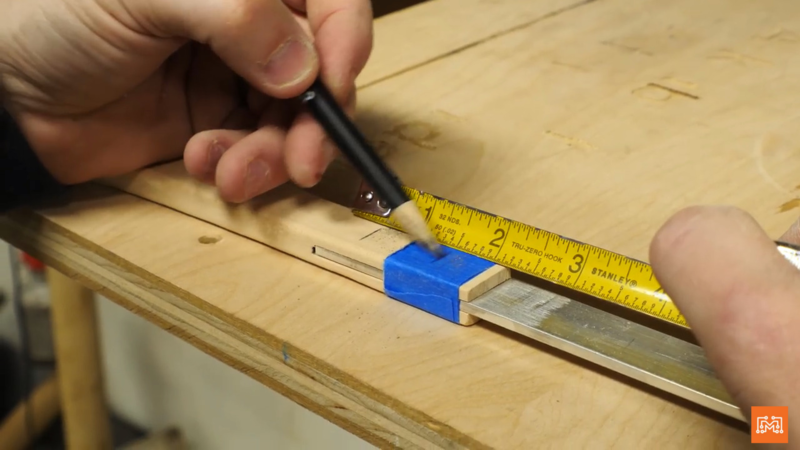
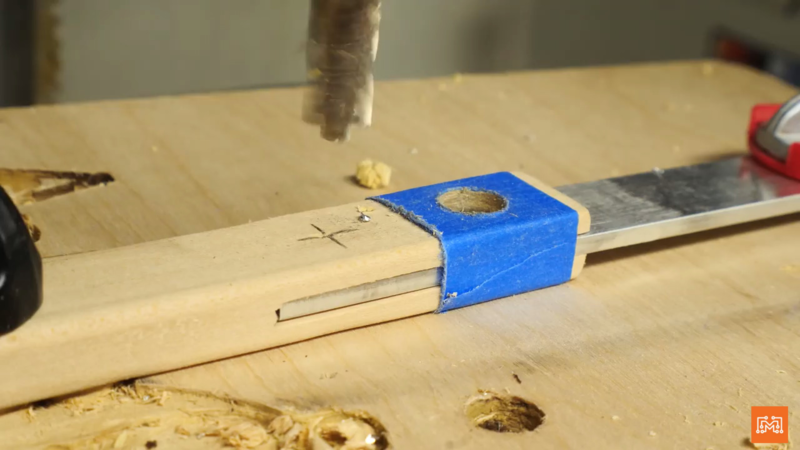
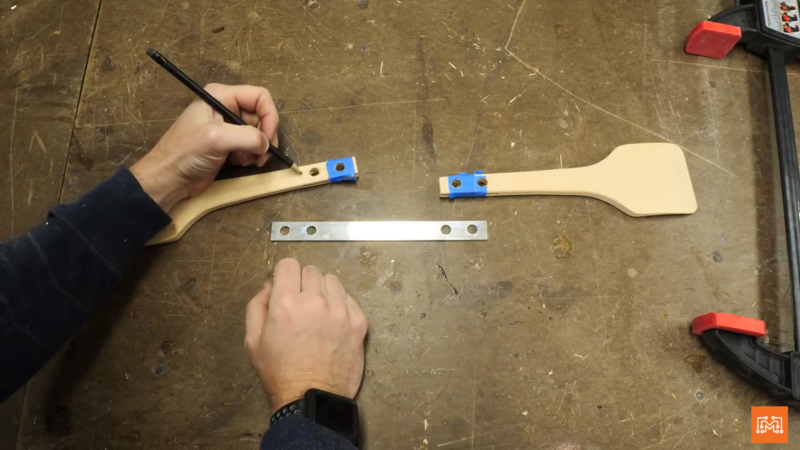
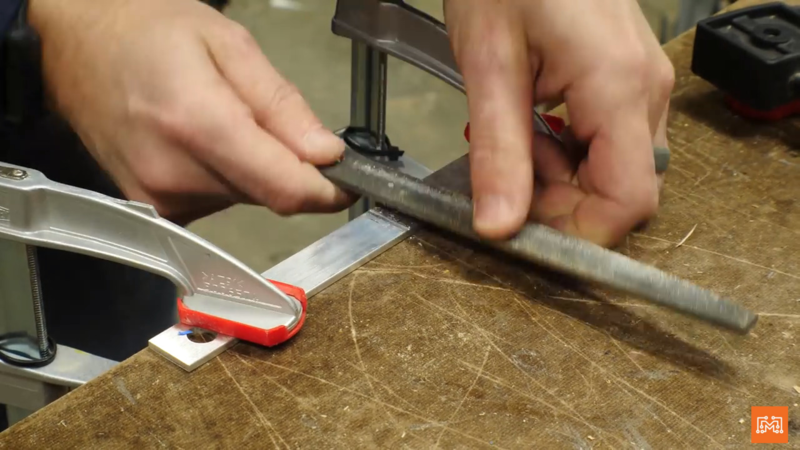
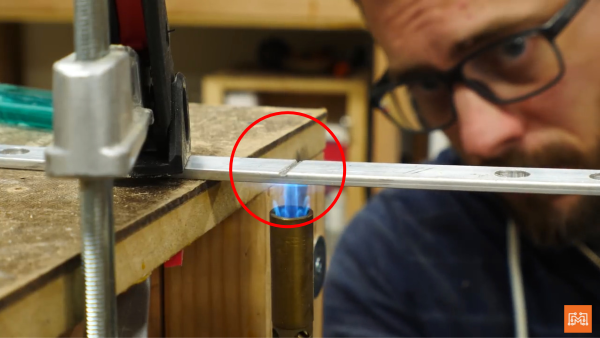
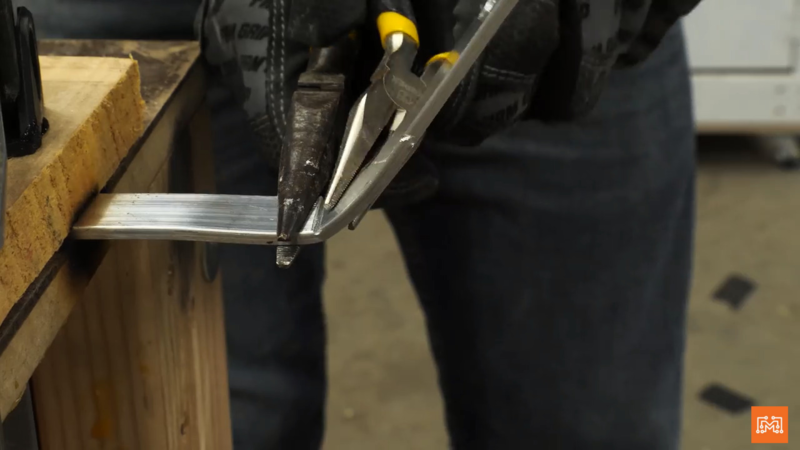
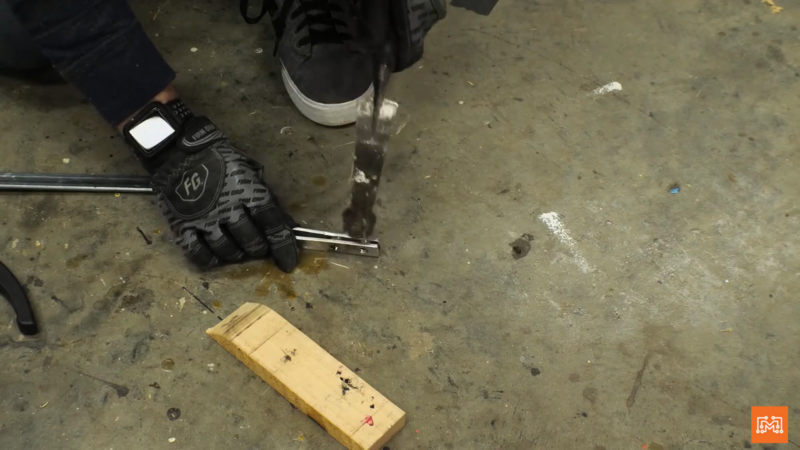
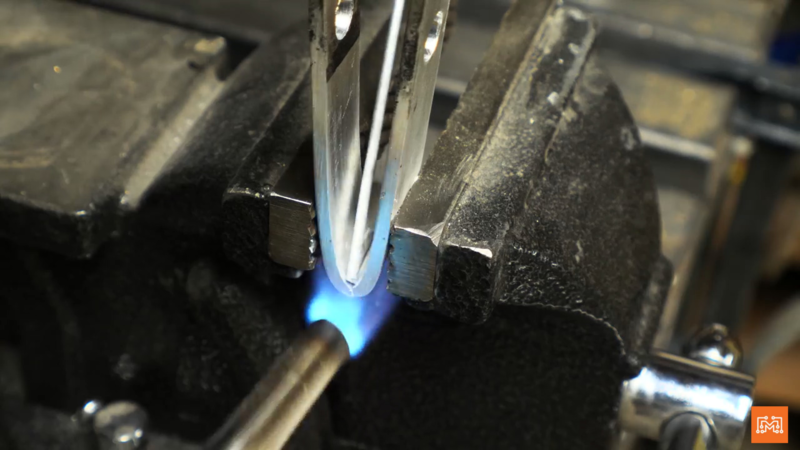
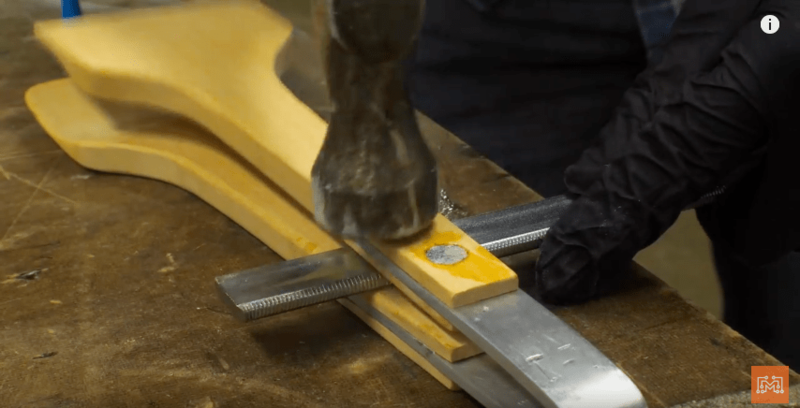
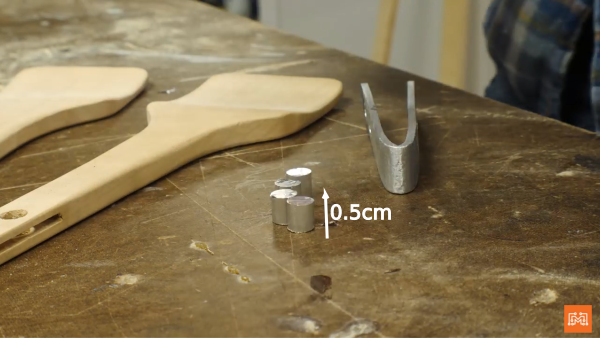
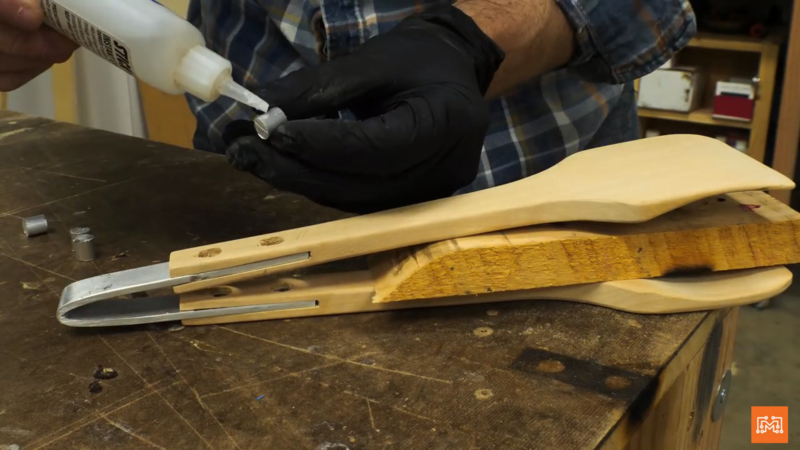
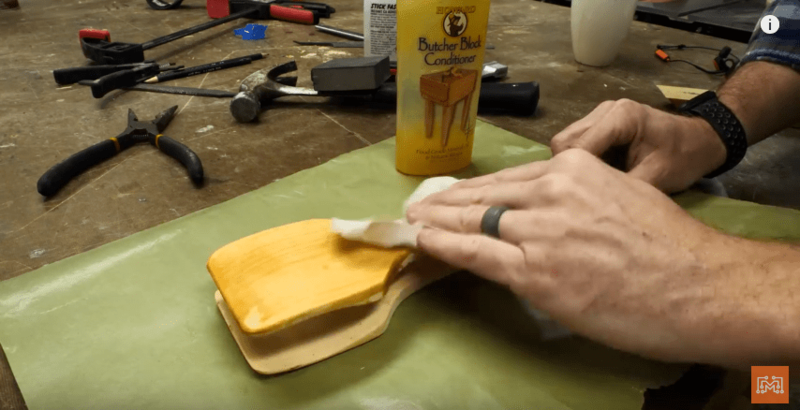
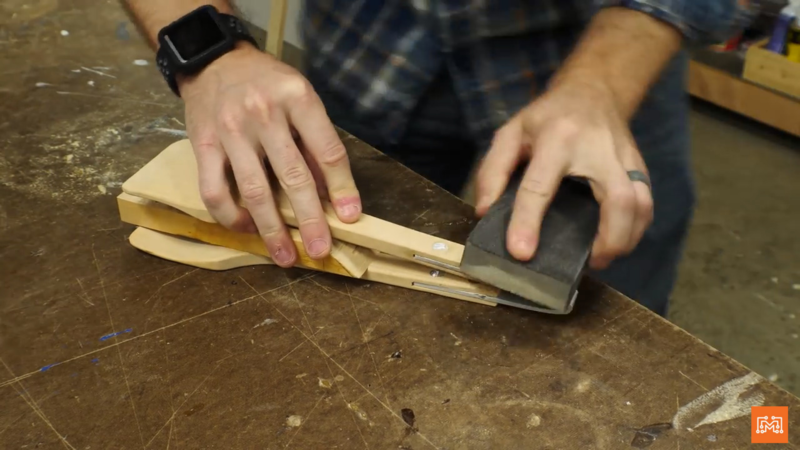
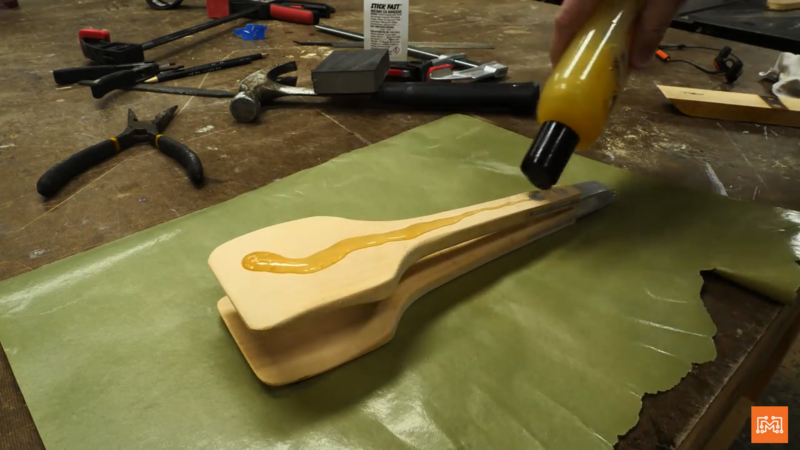
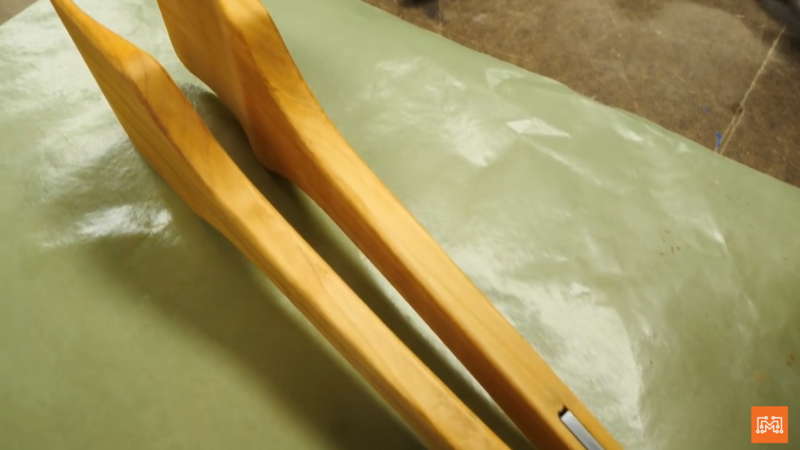
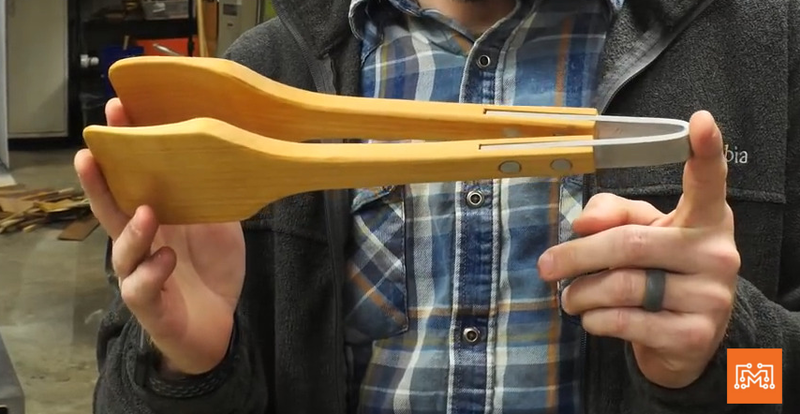
 Français
Français English
English Deutsch
Deutsch Español
Español Italiano
Italiano Português
Português